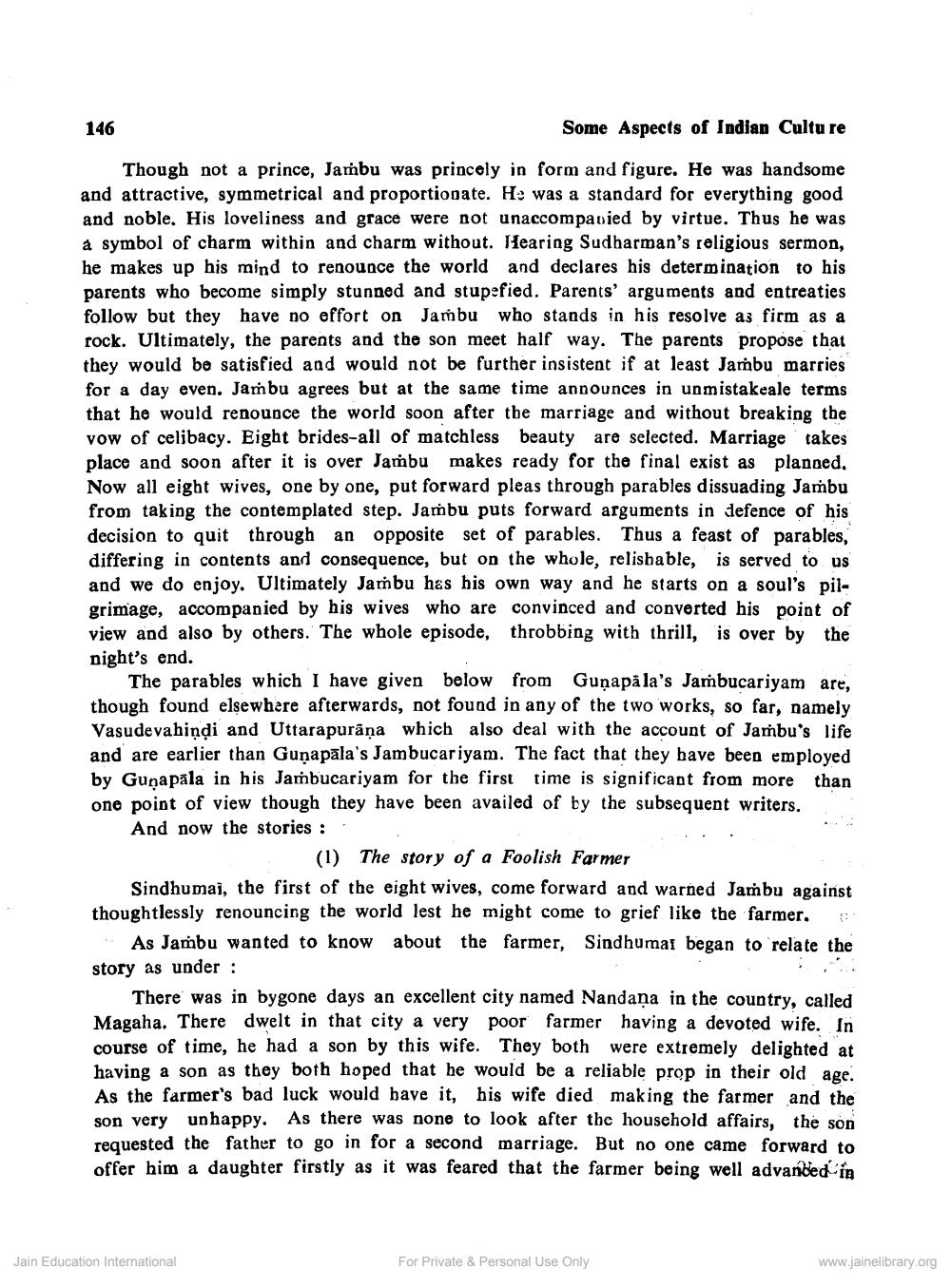________________
146
Some Aspects of Indian Culture
Though not a prince, Jambu was princely in form and figure. He was handsome and attractive, symmetrical and proportionate. He was a standard for everything good and noble. His loveliness and grace were not unaccompanied by virtue. Thus he was a symbol of charm within and charm without. Hearing Sudharman's religious sermon, he makes up his mind to renounce the world and declares his determination to his parents who become simply stunned and stupefied. Parents' arguments and entreaties follow but they have no effort on Jambu who stands in his resolve az firm as a rock. Ultimately, the parents and the son meet half way. The parents propose that they would be satisfied and would not be further insistent if at least Jambu marries for a day even. Jambu agrees but at the same time announces in unmistakeale terms that he would renounce the world soon after the marriage and without breaking the vow of celibacy. Eight brides-all of matchless beauty are selected. Marriage takes place and soon after it is over Jambu makes ready for the final exist as planned. Now all eight wives, one by one, put forward pleas through parables dissuading Jambu from taking the contemplated step. Jambu puts forward arguments in defence of his decision to quit through an opposite set of parables. Thus a feast of parables, differing in contents and consequence, but on the whole, relishable, is served to us and we do enjoy. Ultimately Jambu has his own way and he starts on a soul's pilgrimage, accompanied by his wives who are convinced and converted his point of view and also by others. The whole episode, throbbing with thrill, is over by the night's end.
The parables which I have given below from Guņapala's Jambucariyam are, though found elsewhere afterwards, not found in any of the two works, so far, namely Vasudevahindi and Uttarapurana which also deal with the account of Jambu's life and are earlier than Gunapala's Jambucariyam. The fact that they have been employed by Gunapala in his Jambucariyam for the first time is significant from more than one point of view though they have been availed of by the subsequent writers. And now the stories :
(1) The story of a Foolish Farmer Sindhumai, the first of the eight wives, come forward and warned Jambu against thoughtlessly renouncing the world lest he might come to grief like the farmer.
As Jambu wanted to know about the farmer, Sindhumat began to relate the story as under :
There was in bygone days an excellent city named Nandana in the country, called Magaha. There dwelt in that city a very poor' farmer having a devoted wife. In course of time, he had a son by this wife. They both were extremely delighted at having a son as they both hoped that he would be a reliable prop in their old age. As the farmer's bad luck would have it, his wife died making the farmer and the son very unhappy. As there was none to look after the household affairs, the son requested the father to go in for a second marriage. But no one came forward to offer him a daughter firstly as it was feared that the farmer being well advanced in
Jain Education International
For Private & Personal Use Only
www.jainelibrary.org




